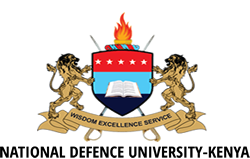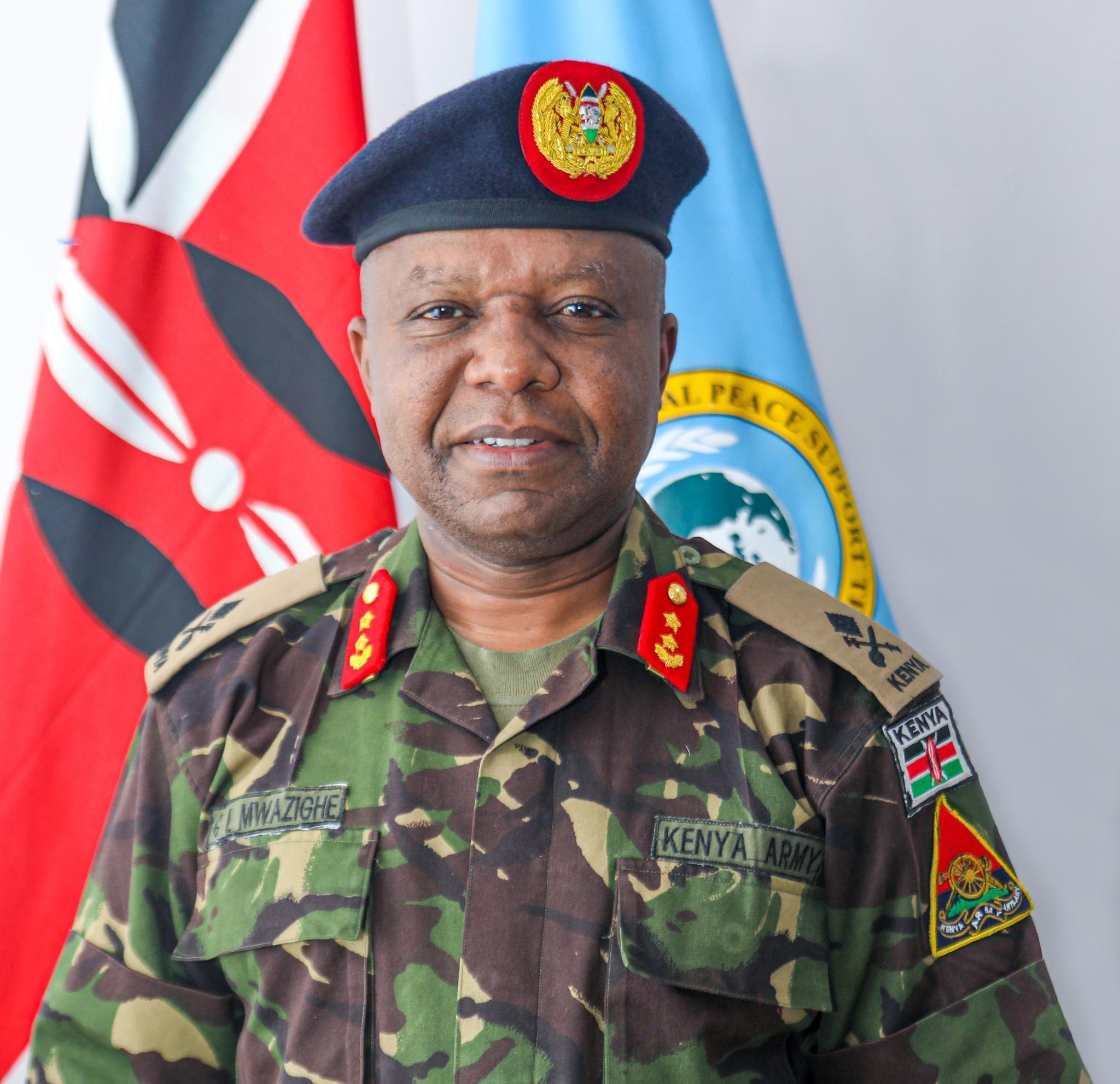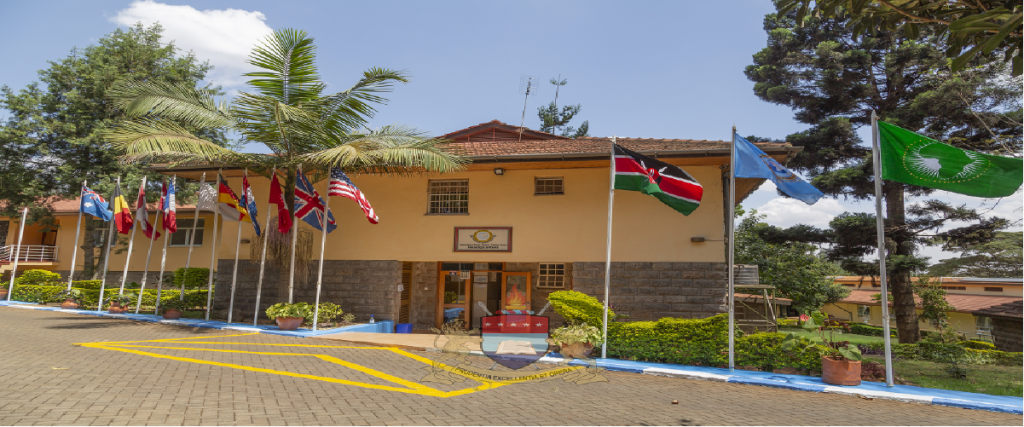INTERNATIONAL PEACE SUPPORT TRAINING CENTRE
International Peace Support Training Centre (IPSTC) was established in January 2001 as part of the Kenyan Defence Staff College. It initially focused at training of Kenyan forces for UN peace keeping missions and later African Union Peace Support Operations. PSTC became a separate Kenyan MOSD establishment in July 2006 and in 2008, initial efforts towards “internationalization” were made. In 2009, PSTC Karen merged with International Mine Action Training Centre (IMATC) to form one centre, International Peace Support Training Centre (IPSTC). The former PSTC was renamed to Peace and Conflict Studies School (PCSS) and IMATC renamed to Humanitarian Peace Support School (HPSS). In 2011, IPSTC achieved autonomy through formal partnership arrangements with USA, UK, Canada, Japan, Kenya, Germany and UNDP.
Under the umbrella of NDU-K, the Centre’s Postgraduate School aspires to achieve excellence in education and research in peace, security, disaster management, crisis response, gender inclusivity, conflict stabilisation, and development of society. The institution will admit learners from the security sector and civilians into its programmes to enable multi-agency and multidimensional approach to management of modern-day complex emergencies, crises and security challenges.
Notably, countries in different regions of the world are experiencing crises and emergencies that threaten internal security, which sometimes spills over to pose regional security threats. Thus, crisis response and disaster management are key components of national security. For instance, crises and disasters requiring coordinated interagency expert intervention are common in Kenya and the Horn of Africa.
Under NDU-K, the Centre will initially offer a Master’s Degree in Crisis Response and Disaster Management with additional programmes earmarked for roll-out in the near future. This programme is tailored to produce innovative practitioners with capacity to provide leadership in complex emergency situations. Additionally, it will provide a basis for specialised higher training to enable conceptualisation and mitigation of current and emerging challenges in crisis response and disaster management. The programme will address the existing knowledge gap by incorporating practical aspects through simulation and field training.


